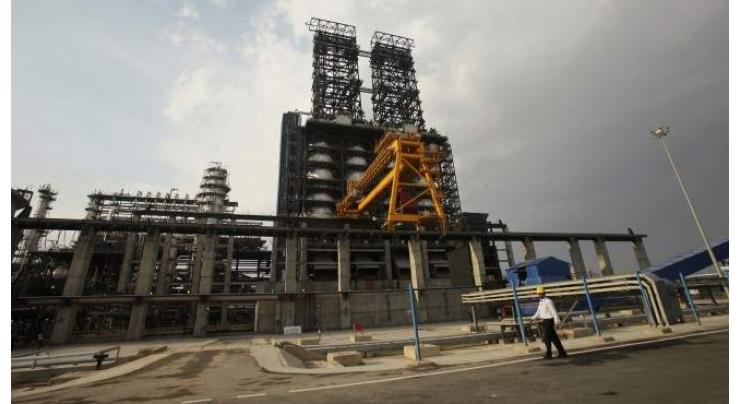
- Home
- Business
- News
- Russia's Oil Extraction Level to Stay Unchanged in 7-10 Years, May Decrease Later - ROSGEO
Russia's Oil Extraction Level To Stay Unchanged In 7-10 Years, May Decrease Later - ROSGEO
Fakhir Rizvi Published January 19, 2019 | 12:35 AM

Russia may continue to extract the same quantities of oil in the medium term of 7-10 years, but in a decade this volume might begin to decline in the absence of needed financing, Russian ROSGEO state company CEO Roman Panov said on Friday
According to Panov, without government increasing public financing of geological prospecting from the current 30 billion rubles ($452 million) per year to 60-80 billion Russia will not be able to maintain the current level of oil extraction beyond 10 years.
"In my opinion, in the medium term, if we speak about the horizon of 7-10 years, I do not see any objective risks for the current production volume to decrease ... [Without the needed funding] there are high risks that beyond the horizon of 7-10 years a sharp decrease [in oil extraction] might occur," Panov stated.
Panov added that only about 25 percent of oil extracted over the past 15 years was coming from new oil fields, while the rest was extracted from the already existing ones.
According to Panov, in order to maintain the current volume of oil extraction in the long-run, it is crucial to search for new oil fields and develop hard-to-extract oil reserves and fields in the Arctic.
"And, perhaps, if the state can stimulate small and medium-sized companies, the work [should be carried out] at small and medium-scale deposits ... According to our estimates, up to 100 million tonnes [of oil] can be extracted from the small fields. This is the task that small-sized companies can solve," Panov said.
In 2018, Russian oil production increased by 1.6 percent year-on-year and amounted to 556 million tonnes.
Related Topics
Recent Stories

Robinson, bowlers help New Zealand go 2-1 up against Pakistan

Shahzeb Chachar to hold khuli kachehri on April 26

Heatwave amid Israel's aggression in Gaza brings new misery, disease risk

Tourism must change, mayor says as Venice launches entry fee

Court adjourns Judicial Complex attack case till May 17

Nasreen Noori’s book ‘Popatan Jahra Khwab’ launched

Wafaqi Mohtasib inspection team visits Excise and taxation office

AJLAC announces 5th Conference titled ‘People’s Mandate: Safeguarding Civil ..

Pak-US officials engage to enhance trade, investment ties

IBCC to promote educational excellence, expand regional presence

Pakistani 'Blue Helmets' serving UN Peacekeeping Mission in DR Congo set to leav ..

Putin says plans to visit China in May
More Stories From Business
-
Chinese minister felicitates Ahsan Iqbal on reappointment as Planning minister
1 hour ago -

Pak-US officials engage to enhance trade, investment ties
2 hours ago -

Stocks fall as tech shares sink, US economy slows
3 hours ago -

Higher taxes, awareness help decrease cigarettes sale in Pakistan
4 hours ago -

Ahsan Iqbal chairs CPEC JWGs, 13th JCC review-meeting
4 hours ago -

Industries Minister recommends urea fertilizer import to stabilize prices and supply
4 hours ago
-

Honda announces US$11 bn EV battery and vehicle plant in Canada
4 hours ago -

Zhao Shirin calls on Punjab Industries Minister
4 hours ago -

CEO APM Terminals calls on Finance Minister
5 hours ago -

SACM visits GTVC checks attendance register
5 hours ago -

CEO APM Terminals meets Commerce Minister
5 hours ago -

RTO destroys huge quantity of non-duty paid cigarettes
5 hours ago
















